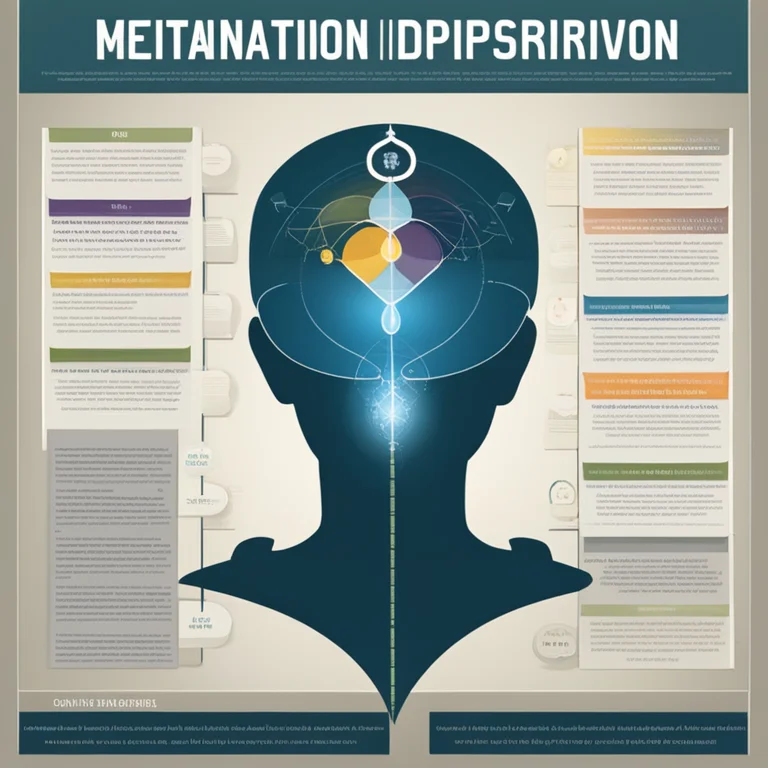
Meditative Practices for Alleviating Depression
Discover how meditation can be a powerful tool in managing depression and promoting mental well-being in this insightful article.
article by Hina Kurosawa
Introduction to Meditation and Mental Health
Meditation has long been heralded as a pathway to peace and self-discovery. In recent years, research has begun to shed light on its therapeutic potential for mental health conditions, including depression. With the rise of mindfulness and wellness culture, individuals seeking solace from the grips of depression are turning increasingly towards meditative practices. This article delves into how integrating meditation into daily life can significantly assist in managing depressive symptoms and enhancing overall emotional balance, particularly as we embrace the wellness paradigms of 2024 and beyond.

The Science Behind Meditation and Depression
The connection between meditation and depression improvement is not just anecdotal. Modern science has pinpointed changes in brain activity and chemistry that occur during meditation, which may benefit those with depression. Studies highlight the role of meditation in increasing neurotransmitters associated with mood regulation, such as serotonin and dopamine. Furthermore, practices like mindfulness meditation have been shown to reduce activity in the amygdala, the brain's "fear center," which is often overactive in those with depression, suggesting a tangible, neurological basis for meditation's mood-enhancing effects.

Meditation Techniques to Combat Depression
Various meditation techniques offer different pathways out of depressive states. Mindfulness meditation encourages a non-judgmental awareness of the present moment, reducing rumination—a common feature of depression. Metta, or loving-kindness meditation, fosters compassion and reduces negative self-talk. Guided imagery helps in envisioning a more hopeful future, while transcendental meditation allows for the experience of a state of restful alertness, which may alleviate depressive symptoms. These methods offer a diverse toolkit for individuals seeking to meditate for depression relief.

Creating a Sustainable Meditation Practice
The key to reaping the benefits of meditation for depression lies in consistency. Establishing a routine, whether it's a few minutes each morning or a longer session to close the day, helps in forming a habit. Moreover, in 2024, technology supports this journey, with apps and virtual reality meditation programs tailored to personal needs and progress tracking, making the cultivation of a regular meditation practice increasingly accessible and effective for the diverse needs of those battling depression.

Complementary Therapies and Professional Support
While meditation can be a potent ally against depression, it's vital to view it as part of a comprehensive self-care strategy. Therapeutic support, whether through counseling or medication, nutrition, physical activity, and adequate sleep, remains crucial components of an effective depression management plan. When combined with these practices, meditation can amplify the benefits and offer a holistic approach to mental health that is more aligned with the multifaceted nature of depression.
Personalizing Your Meditation Journey
Personalizing one's meditation experience is essential, as the nature of depression varies widely between individuals. Some may find solace in group meditation classes that provide community support, while others may prefer solitary practice. Experimentation with different forms of meditation can uncover the right fit for one's unique needs and circumstances. The beauty of meditation lies in its adaptability; it can be modified to respect personal boundaries and limitations while still providing its profound benefits for mental health.
Published: 1/9/2024
Modified: 1/9/2024
More predictions
Come back here soon to learn more about yourself and your future


The Serenity Sojourn: Embrace a Meditation Retreat
Delve into the tranquility of a meditation retreat and rejuvenate your mind, body, and soul with practices that transcend time.


Retreat into Serenity: A Meditation Haven
Discover the transformative power of a meditation retreat and find tranquility for mind, body, and spirit in our comprehensive guide.


The Serene Path: A Guide to Meditation Retreats
Discover the transformative journey of meditation retreats and how they can enhance your spiritual practice in a serene environment.